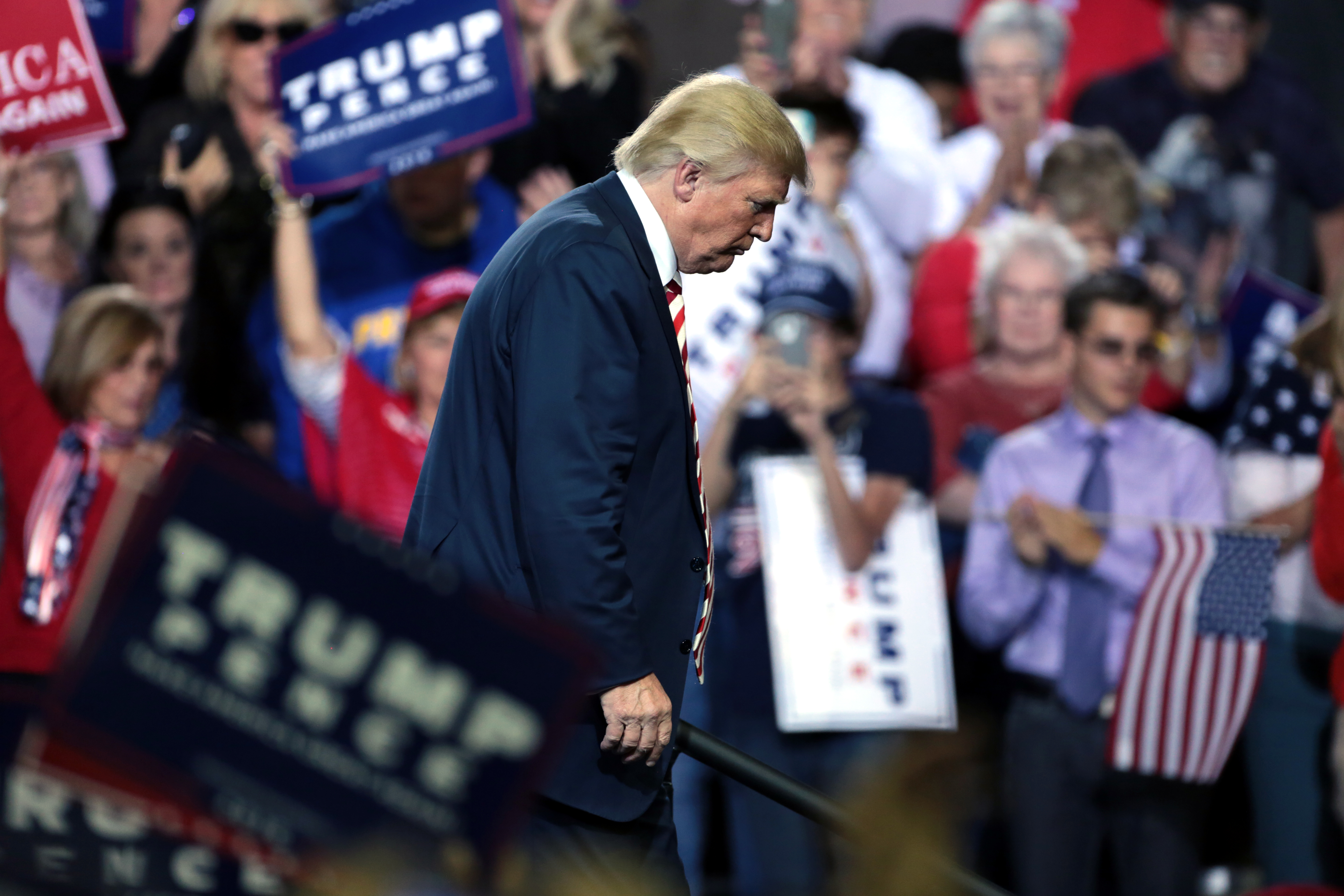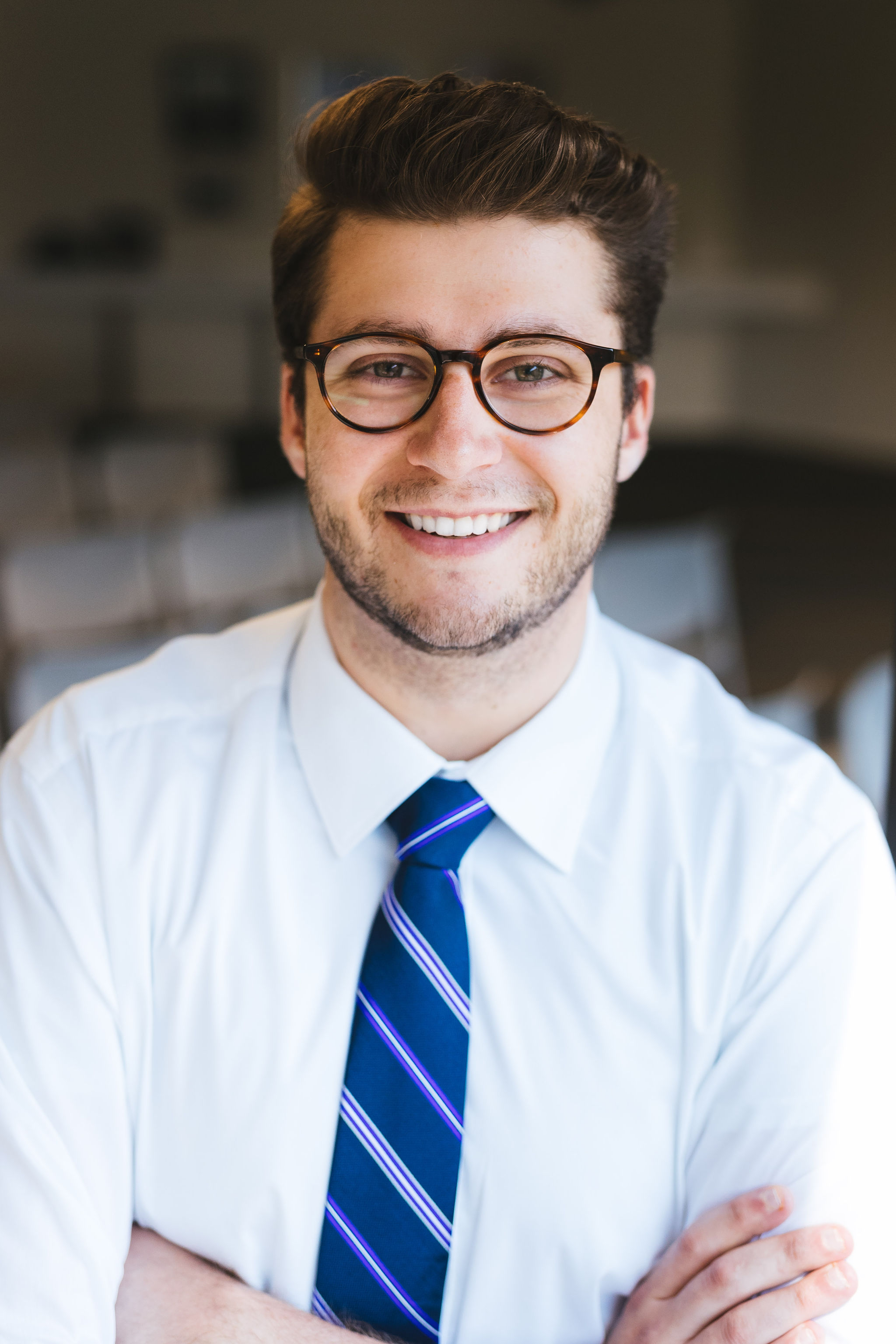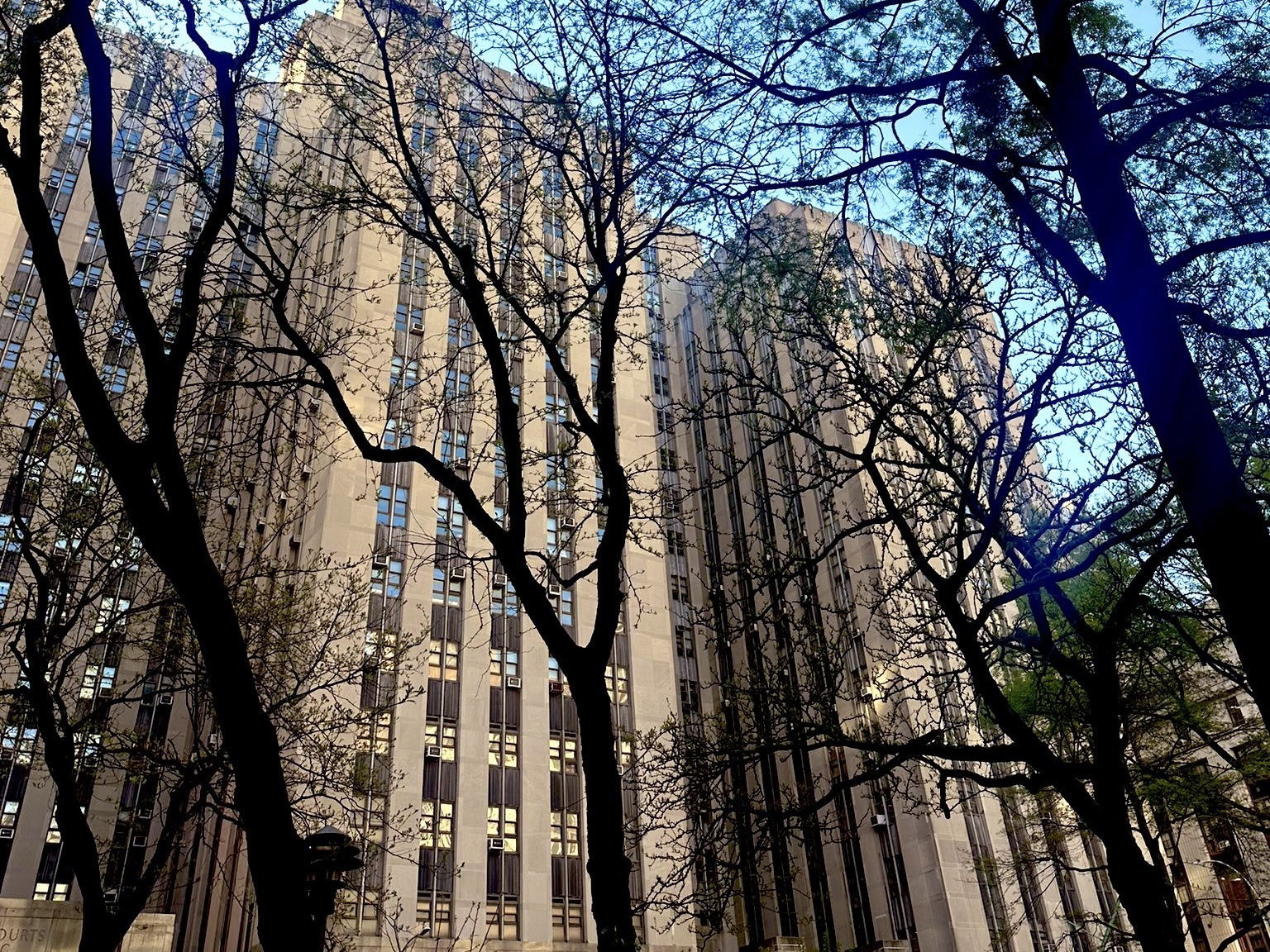How States Are Investigating and Prosecuting the Trump Fake Electors
The current status of nationwide efforts to hold accountable the people behind the 2020 fake electors plot.

Published by The Lawfare Institute
in Cooperation With

Of all the ways that Donald Trump and his allies attempted to overturn the 2020 election—including litigation, bullying, and eventually outright violence—the fake electors scheme was perhaps the most convoluted. As described by the House’s select committee on Jan. 6 and Special Counsel Jack Smith’s indictment of the former president in Washington, D.C., the effort involved a plan to flip the Electoral College vote to Trump by putting forward “alternate slates” of electors claiming a Trump victory in states won by President-Elect Joe Biden. With guidance and encouragement from the Trump campaign and other supporters of the president, Republican officials and party members in seven states—Michigan, Wisconsin, Pennsylvania, Nevada, New Mexico, Georgia, and Arizona—prepared certificates declaring themselves to represent or potentially represent the rightful electors in those states, over the official electors certifying the vote for Biden. The idea was to either flip the electoral tally to Trump outright during Congress’s counting of the vote on Jan. 6 or generate enough legal uncertainty to prevent Vice President Mike Pence from certifying Biden’s victory.
The scheme features prominently in Smith’s D.C. indictment of Trump and in the indictment of Trump and 18 other co-defendants in Georgia court by Fulton County District Attorney Fani Willis. These two cases have understandably received the most attention—after all, they feature charges against Trump himself. But over the past three years, the other states targeted by the fake electors plot have conducted their own investigations, too. And in some, fake electors are facing criminal charges.
With such a sprawling landscape of investigations and prosecutions, it can be difficult to keep track of where everything stands. Here, we’ve provided an overview of the state of play across the country. In Michigan and Nevada, fake electors are facing criminal prosecution in state court, while a criminal probe continues in Arizona and possibly in Wisconsin as well. Civil litigation in the latter state has also resulted in a settlement barring the Wisconsin fake electors from serving as electors in any contest in which Trump is on the ballot. Meanwhile, in New Mexico and Pennsylvania, fake electors appear unlikely to face criminal charges.
Michigan
On July 18, 2023, Michigan Attorney General Dana Nessel announced felony charges against 16 Michigan residents for their alleged involvement in the fake electors scheme. The defendants—all of whom served as fake electors for Trump in that state—have been charged for allegedly falsely claiming to be official electors from Michigan, signing a fake electoral certificate as a Michigan public record, and attempting to submit the fake certificate to the U.S. Senate and the National Archives. In announcing the charges, Nessel stated, “This remains an ongoing investigation, and the Michigan Department of Attorney General has not ruled out potential charges against additional defendants.”
According to the attorney general’s office, the “fake electors” engaged in this conduct after the Michigan Board of State Canvassers had certified Biden’s victory in the state on Nov. 23, 2020, and after courts had already dismissed several lawsuits filed by the Trump campaign challenging vote counting processes in three counties. The lawsuits, filed by pro-Trump organizations such as True the Vote and Trump voters in Michigan, claimed that the counties failed to provide access for Republican challengers and counted ballots from ineligible voters. Filed complaints, other court documents, and media appearances by pro-Trump surrogates suggest that the lawsuits aimed to instill doubt about the validity of Michigan’s election verification processes and potentially delay vote certification beyond Congress’s Dec. 8 safe harbor deadline. During this period, President Trump also unsuccessfully pressured Michigan House Speaker Lee Chatfield (R) and Senate Majority Leader Mike Shirkey (R) to defy Michigan state court and federal court rulings and to declare that he had won the state.
Each of the defendants faces eight charges: one count of conspiracy to commit forgery (MCL 750.157A), two counts of forgery (MCL 750.248), one count of conspiracy to commit uttering and publishing (MCL 750.157A), one count of uttering and publishing (MCL 750.249), one count of conspiracy to commit election law forgery (MCL 750.157A), and two counts of election law forgery (MCL 168.933A). The latter two statutes carry a penalty of up to five years in prison; the other crimes are punishable with up to 14 years.
The forgery in question refers to the fake electoral certificates. While the first two counts, concerning forgery and conspiracy to commit forgery, are relatively self-explanatory, the charges concerning “uttering and publishing” may sound strange to readers unfamiliar with Michigan law. The statute in question makes it a felony offense to forge, falsify, alter, or counterfeit an official record with the intent to injure or defraud. While this criminal provision is typically used to prosecute manipulation of financial instruments—such as counterfeit money or forged checks—Michigan’s felony complaint against the fake electors extends its reach to election records. The last two charges, concerning election law forgery and conspiracy to commit election law forgery, are relatively new to Michigan law: The election law forgery statute was enacted in 2018 by the Michigan legislature and explicitly prohibits knowingly falsifying an election document.
All defendants initially pleaded not guilty. In October 2023, the attorney general announced a cooperation deal with James Renner, one of the fake electors, and dropped all criminal charges against him. During the same period, the court completed arraignment hearings for the remaining 15 defendants and assigned dates for preliminary hearings to determine whether prosecutors have provided sufficient evidence to move forward with the criminal proceedings. Judge Kristen Simmons held an initial batch of preliminary hearings over the winter and is scheduled to continue these hearings in April and May. One defendant, Timothy King, was referred for an additional hearing to determine whether he is competent to stand trial.
Defendants Clifford Frost and Mari-Ann Henry sought to have their charges dismissed, pointing to recent comments by the attorney general to argue that the state could not prove the necessary intent required for all eight charges. During a virtual event on Sept. 18, 2023, Attorney General Nessel had said that the fake electors “are people who have been brainwashed” and “legit believe” that former President Trump won the 2020 election. The attorney general’s office responded by arguing the comments were Nessel’s personal opinion intended for a private audience and that the comments are not relevant for the state’s legal action against the defendants.
On Oct. 6, 2023, Simmons denied the defendants’ motion to dismiss, concluding that Nessel’s comments were “speculation” and insufficient to dismiss the charges at this point in the case. The judge did, however, leave open the possibility of reexamining the impact of Nessel’s comments on the criminal charges later in the trial.
After failing to obtain a dismissal in state court, Frost—though not Henry—sought relief in federal court. Again citing Nessel’s comments, Frost urged the U.S. District Court for the Western District of Michigan to “preliminarily and permanently” enjoin the state court proceedings against him to protect him from bad-faith prosecution in violation of the 14th Amendment. In January 2024, Judge Robert Jonker dismissed Frost’s action, on the grounds of Younger abstention—the proposition that state criminal proceedings are an exception to federal courts’ obligation to decide cases within their jurisdiction. Jonker further found that Frost’s claims of “bad faith”—which would allow a federal court to retain its jurisdiction over state criminal proceedings—did not fall within the very narrow exceptions outlined in Dombrowski v. Pfister, which permits federal court jurisdiction over state criminal cases when state prosecutors exhibit bad faith and/or harass the defendant with the purpose of deterring their conduct. Frost has appealed Jonker’s ruling to the U.S. Court of Appeals for the Sixth Circuit.
Wisconsin
The Wisconsin Elections Commission has twice rejected a complaint requesting the bipartisan commission to investigate the 10 “fake electors.” Under Wisconsin law, the commission has the power to investigate potential violations of Wisconsin election law and rules. Upon a finding that a violation has occurred, the commission can impose civil penalties or refer the case to a district attorney for criminal proceedings.
The complaint, filed by the nonprofit organization Law Forward in February 2021, alleged that the fake electors violated Wisconsin election law by attempting to cast Wisconsin’s Electoral College votes for Donald Trump in the 2020 election and disrupt the peaceful transfer of power.
On March 9, 2022, the election commission issued its unanimous first rejection. To reach this conclusion, the commission relied on a Wisconsin Department of Justice memorandum that, as described by the AP, found the “Republicans weren’t trying to fool the Senate but instead were legitimately trying to preserve Trump’s legal standing as courts were still deciding if he or Biden had won.”
The commission’s decision provoked controversy—in part because commissioner Robert Spindell, who had participated in the vote, was also one of the named fake electors. Law Forward and a Madison-based law firm, Stafford Rosenbaum, filed a suit in Wisconsin state court to compel the election commission to reconsider the complaint without the participation of Spindell. Roughly one year after the commission first declined to initiate an investigation, Dane County Circuit Judge Frank Remington ordered the commission to review the complaint without Spindell’s involvement. In December 2023, the commission again refused to investigate by a 5-0 vote. Unlike in the first hearing, the commission did not provide any explanation for its decision, which it reached in a closed-door session.
After the commission rejected Law Forward’s request to investigate the fake electors, the organization filed a civil complaint in state court against the 10 Wisconsin fake electors along with Kenneth Chesebro, an attorney whose memos served as the legal foundation for the fake electors plot, and James Troupis, a lawyer who led Trump’s efforts in Wisconsin to overturn the election. The complaint alleges that the fake electors ignored state and federal law through deliberate attempts to overturn the state’s certified elections results. These efforts, the complaint argued, culminated with the fake electors casting their votes, and Wisconsin’s Electoral College votes, for President Trump and sending them to the U.S. Senate. To pursue civil relief, Law Forward’s complaint alleged several counts, including Wisconsin common law civil conspiracy; public nuisance under Wis. Stat. § 823.01; public nuisance under Wis. Stat. § 823.02; common law quo warranto as codified by Wis. Stat. § 784.04; punitive damages under Wis. Stat. § 895.043(3); and relief under Wis. Const. art. I, § 9, which permits the Wisconsin Constitution to act as the basis for a remedy when no other forum does not exist.
In late December 2023, Law Forward and the fake electors reached a settlement. This includes an acknowledgment from each fake elector that Biden fairly won Wisconsin’s presidential election in 2020, a notification to the relevant government offices that the electoral certificates were fake, and a prospective ban on each elector from serving as a presidential elector in 2024 and any other election with Trump on the ballot. The fake electors, however, were not required to admit wrongdoing or pay any of the $2.4 million in punitive damages sought by Law Forward.
Two months later, Law Forward reached a second settlement with the remaining defendants, Chesebro and Troupis. Under the settlement, both defendants admit that their conduct was an improper attempt to overturn the legitimate 2020 presidential election results in Wisconsin and that they will refrain from participation in election certification and selection of electors “unless certified as the persons elected as presidential electors under state law.” The settlement also required the individuals to release a large tranche of previously unseen communications among Chesebro, Troupis, Trump campaign officials, and Wisconsin Republicans. The newly released documents provide a window into the Trump campaign’s efforts to manufacture legitimacy for the president’s baseless claims of election fraud and show in great detail the extensive role that Chesebro and Troupis played in the fake electors scheme in Wisconsin and elsewhere.
December also saw the first stirrings of a possible state criminal investigation against the fake electors. That month, CNN reported that Chesebro was cooperating with state-level investigations in Wisconsin as well as Michigan, Nevada, and Arizona. Chesebro’s cooperation, the network wrote, represented “the first indication the state attorney general’s office has launched its own investigation into the false slates of pro-Trump electors.” No other details have yet been reported.
Pennsylvania
Pennsylvania’s fake electors have not faced prosecution, nor are they likely to in the future. In 2022, then-Pennsylvania Attorney General Josh Shapiro—now the state’s governor—announced that the fake electors’ “rhetoric and policy were intentionally misleading and purposefully damaging to our democracy.” However, he conceded that “our office does not believe this meets the legal standards for forgery.” His successor, Attorney General Michelle Henry, holds the same position.
Key to Shapiro’s conclusion was a caveat included in the Pennsylvania certification documents, which stated that the certificate would be considered valid only if later the courts “determined that we are the duly elected and qualified electors” of the state. The Pennsylvania fake electors have claimed that they were merely completing a formality ahead of a statutory deadline that would be necessary should the Trump campaign’s pending legal challenges to the state’s vote tallies prevail. The document’s caveat gives that claim legal credence. One signatory later explained, “This was in no way, shape or form us trying to go around the election.”
Nevada
In December 2023, a Nevada grand jury indicted six defendants—all of whom signed their names as Trump electors—for their involvement in the fake electors scheme. The six are currently awaiting trial for state felony criminal charges.
Publicly released transcripts of Chesebro’s testimony before a Nevada grand jury provide background on what took place in the state. According to Chesebro, the six fake electors for Nevada in the 2020 general election worked with him to submit a false electoral certificate claiming that Trump, not Biden, won the state. Chesebro testified that he provided the Nevada GOP with a “step-by-step explanation” for how to prepare and submit the fake certificate as part of the campaign’s scheme to overturn the legitimate results of the 2020 election. The Trump campaign placed special significance on Nevada early on, with the president himself calling one of the fake electors, Nevada Republican Party Chairman Michael McDonald, to organize their efforts. Transcripts of testimony to the House’s select committee on Jan. 6 further reveal that initial planning began at least four days before the election.
The journey to the Nevada indictment has been somewhat tangled. The six fake electors initially avoided criminal charges after Attorney General Aaron Ford determined that state laws did not cover the fake elector scheme. In May 2023, Ford said that his office had “ascertained that current state statutes did not directly address the conduct in question.” In response, the Nevada legislature passed legislation that would criminalize future fake elector attempts, but Republican Gov. Joe Lombardo vetoed the bill. Four months later, Ford walked back any indications that the fake electors would avoid criminal liability and signaled that prosecution was possible. The reason for Ford’s mixed messaging on the issue remains unclear.
Despite Ford’s initial findings, a grand jury indicted the fake electors in December 2023. The six fake electors are each charged with offering a false instrument for filing under NRS 239.30 and uttering a forged instrument under NRS 205.110; they face nearly a decade in prison and $15,000 in fines if convicted on both counts. Their trial was originally set for March 2024 but has been delayed until January 2025.
On Jan. 29, 2024, defendant Michael McDonald filed a petition for writ of habeas corpus, arguing that the state had failed to establish probable cause and provide exculpatory evidence. Defendants Jesse Law and Eileen Rice later joined the petition. Also on Jan. 29, Rice filed a motion to dismiss the case for improper venue, arguing that the case could only be heard in Douglas County (where the fake electoral certificate was mailed from to Washington, D.C.) or Carson City (where the fake electoral certificate was executed by the defendants). Attorneys for the other defendants have stated that the others will join Rice’s motion as well.
Prosecutors responded to both filings on Feb. 8, arguing that they had presented sufficient evidence to establish probable cause for each charge and that Clark County is a proper venue because the defendants committed preparatory acts (drafting and revising the fake electoral certificate) there. The court has not ruled on either issue yet. In the meantime, some of the defendants remain involved in state and local elections, including the Nevada Republican Party’s caucus in February.
New Mexico
A recently concluded investigation conducted by New Mexico Attorney General Raúl Torrez determined that the Trump campaign worked closely with the state Republican Party to submit an alternate slate of electors to the 2020 general election. The Trump campaign supplied the five fake New Mexico electors with the fake electoral certificate as well as with guidance for finishing and submitting it to the National Archives.
The New Mexico fake electors are unlikely to face criminal penalties, however, in part because of caveats included in the fake certificate. Like the fake Pennsylvania certificate, which contained conditional language that foreclosed forgery charges against the Trump electors in that state, the fake electors qualified the certificate’s use as contingent “on the understanding that it might later be determined that we are the duly elected and qualified Electors[.]” Under New Mexico law, forgery requires acting with an intent to injure or defraud, but Torrez concluded that the fake electors’ qualifying language “communicated they were not, at that time, New Mexico’s legitimate presidential electors.” Additionally, New Mexico lacks laws criminalizing the submission of fake electoral votes, election certificate forgery, and impersonating public officers—viable avenues for prosecution in other states with fake electors such as Michigan and Georgia.
While Torrez’s investigation ended without charges against the fake electors, the office’s final report nonetheless called for changes to New Mexico law to prevent similar events from occurring in the future. Torrez specifically recommended amending the state’s electoral code to criminalize “falsely acting as a presidential elector[.]” He also suggested two amendments to Section 1-20-9 (falsifying election documents) of the state’s electoral code: (1) to include within its scope documents like the 2020 fake electorate certificate and (2) to remove the intent requirement so that individuals cannot escape criminal liability by using conditional language in the future.
The Republican Party of New Mexico opposed Attorney General Torrez’s legislative suggestions, stating that they would effectively “criminalize the process used by both Democrats and Republicans.” New Mexico Democrats have acted on Torrez’s recommendations, however, and voted House Bill 19 out of committee on Feb. 2. The bill criminalizes knowingly or recklessly disrupting election results (including submitting a fake electoral certificate) and falsely acting as a presidential elector, and would eliminate the ability to use conditional language as a defense to the charge of falsely acting as a presidential elector. It remains to be seen whether there is sufficient political momentum to enact any of the proposals in New Mexico’s next legislative session.
Georgia
Three of Georgia’s fake electors, Cathleen Alston Latham, David Shafer, and Shawn Still, are named as defendants in the Fulton County District Attorney’s sprawling racketeering indictment, alongside Donald Trump and high-profile allies of the former president. At least eight of the state’s fake electors reportedly accepted immunity deals that shield them from prosecution in exchange for their cooperation with investigators and testimony in the case.
Georgia Lt. Gov. Burt Jones, who also served as a fake elector, is being investigated after a prolonged delay. A judge disqualified District Attorney Fani Willis from investigating Jones after she held a fundraiser for Jones’s opponent during the 2022 race for lieutenant governor. It then fell to a nonpartisan state agency, the Prosecuting Attorneys’ Council of Georgia, to appoint a special prosecutor to investigate Jones. Pete Skandalakis, who leads the council, appointed himself to lead the probe in April.
The fate of the state’s remaining fake electors, who were not named in the indictment and who may or may not have received immunity deals, remains unclear.
The indictment charges Latham, Shafer, and Still with impersonating a public officer under O.C.G.A. 16-10-23, forgery under O.C.G.A. 16-9-1(b), false statements and writings under O.C.G.A. 16-10-20, and attempting to file false documents under O.C.G.A. 16-4-1 and 16-10-20.1(b)(1). Latham also faces a range of additional charges in connection with her involvement in an alleged scheme to breach voting equipment in Georgia’s rural Coffee County in an effort to prove voter fraud.
In addition to the three indicted fake electors, several others were indicted for their role in architecting and coordinating the slate. Donald Trump, Rudy Giuliani, John Eastman, Kenneth Chesebro, Ray Smith III, Robert Cheeley, and Michael Roman were charged alongside the three fake electors with criminal conspiracy to commit the offenses described above under O.C.G.A. 16-4-8. These defendants represent individuals involved at every level of the fake elector scheme: Eastman and Chesebro were the architects of the legal theory behind the plot; Smith and Roman allegedly worked to implement it as members of the Trump campaign, while Giuliani participated in his role as Trump’s personal lawyer; Cheeley, meanwhile, allegedly facilitated the scheme on the local level in Georgia. Cheeley is also charged with perjuring himself in testimony before the Fulton County special purpose grand jury.
When signing their certification, on Dec. 14, 2020, Georgia’s fake electors defended their conduct using the same theory shared by other states’ fraudulent slates. David Shafer, the former chairman of the Georgia Republican Party, stated at the meeting that “the only way for us to have any judge consider the merits of our complaint, the thousands of people who we allege voted unlawfully, is for us to have this meeting.” However, Georgia’s fake electors failed to caveat their slate as contingent on the outcome of legal challenges to the vote count, as those in Pennsylvania and Nevada did.
On Sept. 20, 2023, the three electors named in the Fulton County indictment sought removal of their case to federal court. Arguing before Judge Steve Jones in the U.S. District Court for the Northern District of Georgia, they made the case that they were acting as contingent electors rather than fraudulent electors—and, because they were allegedly legitimate contingent electors, they were performing a federal function by certifying their slate and thus acting as federal officials. Counsel for defendants compared this situation to that of Hawaii in the 1960 presidential election, wherein a certified slate of electors for Nixon cast their votes alongside an uncertified slate of electors for Kennedy due to a pending legal challenge at the time. Because that legal challenge prevailed, Congress went on to count the votes of the Kennedy electors.
Anna Cross, a prosecutor with the district attorney’s office, countered that “[t]hese private parties did not transform themselves into public actors by a criminal act” and that performing a federal function does not make someone a federal official.
On Sept. 29, Jones denied each defendant’s motion to remove, rejecting their arguments that they were acting as federal officials or as agents of federal officers. Jones found that electors do not qualify as federal officers under the text of the Constitution, prior Supreme Court precedent, or the structure and purpose of the role. He further found that the fake electors were merely acting in compliance with federal statutes rather than at the direction of the president, Senate, or archivist, which was insufficient to support a finding of an agency relationship. Each defendant has appealed to the 11th Circuit.
Three non-elector defendants named in the indictment have accepted plea deals thus far, including Chesebro and Trump ally Sidney Powell. Both agreed to cooperate with prosecutors in the case in exchange for reduced sentences. Chesebro is known to be cooperating with Arizona Attorney General Kris Mayes in the investigation of her state’s fake elector slate.
Arizona
Arizona is in the unique position of having had two different slates of fake electors: one associated with the state’s Republican Party and another associated with a group called the Sovereign Citizens of the Great State of Arizona. Attorney General Mayes opened investigations into both slates of fake electors after she took office in January 2023. This investigation is ongoing, and Mayes’s office has stressed its seriousness, telling the Arizona Republic in September 2023 that “[i]t’s a very solemn situation. It’s a very important investigation.” In March 2024, Mayes’s team issued grand jury subpoenas to individuals associated with Donald Trump’s 2020 campaign, suggesting that Mayes is nearing a decision on whether to bring criminal charges. Those subpoenaed reportedly include former Trump campaign official Mike Roman and Arizona Reps. Andy Biggs and Paul Gosar, both of whom have reportedly been summoned to testify before the grand jury.
In February 2024, in response to the ongoing investigation, the Arizona Senate Judiciary Committee voted along party lines to open an inquiry into Mayes for allegedly failing to enforce state law and engaging in “witch hunts.” The chairman of the committee, Arizona Sen. Anthony Kern, was one the 11 fraudulent electors associated with the state’s Republican Party.
Mayes’s forerunner in the office, Mark Brnovich, appears not to have conducted any investigation into the scheme, despite a request by then-secretary of state, now-governor Katie Hobbs, that he do so. Mayes commented in March 2023 that she was “not certain that my predecessor did an investigation into the fake electors.” (Mayes is a Democrat, while Brnovich is a Republican.)
Though few public details about the Arizona investigation are available, news reports indicate that Chesebro traveled to Arizona in December 2023 to meet with investigators from the attorney general’s office.







-).jpg?sfvrsn=5f8fac12_3)
